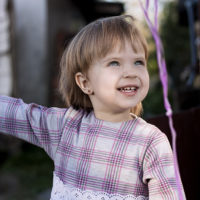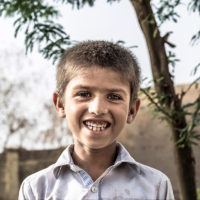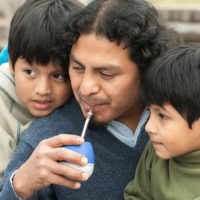Trauma
-

Foster care promotes adaptive functioning in early adolescence among children who experienced severe, early deprivation.
Experiences in our early life can have long-term consequences on development. Children who have experienced severe deprivation, in the form of institutional care (orphanages), are at greater risk to experience a range of social, emotional, and cognitive difficulties. In fact, much of the research tracing long-term consequences of early adversity have come from a deficit model (i.e., “what goes wrong for those with negative experiences”).
Read more -

Early cognitive therapy for traumatised young people works and is also cost-effective
More than half of children and adolescents will experience traumatic events like vehicle accidents, house fires, or violence. However, brief counselling for young people in the immediate aftermath of an acute traumatic event has not be shown to be any more effective than not intervening and allowing natural recovery to take its course.
Read more -

Latest evidence on mental health interventions and service response to refugee children
The latest figures indicate that in 2016 65.5 million people had to leave their homes due to war and armed conflicts, of which around one-third of are refugees who fled other countries to seek asylum.
Read more -

Parental responses in predicting children’s PTSD
Many children will be exposed to a potentially traumatic situation at some point in their childhood -that is, an event where there is a potential threat to life or of serious injury to the child, or to someone close to them. These events can range from common unintentional or accidental traumas, such as car accidents or serious sporting accidents, to deliberate harm, such as assault or maltreatment. Such trauma exposure can have a significant negative impact on a child’s psychological wellbeing.
Read more -

JCPP Editorial: Volume 60, Issue 02, February 2019
“Closing in on causal links between environmental exposures and human development using observational data – “confound those confounders!”” by Pasco Fearon
Read more -

Helping young people in crisis: gender identity, personality problems, and complex trauma
Helping young people in crisis: gender identity, personality problems, and complex trauma. The Jack Tizard Memorial Lecture and National Conference returns with a focus on vulnerability and resilience. About the speakers Self-harm in children and adolescents: a major health and social problem of our time Keith is Professor of Psychiatry and Director of the Centre for […]
- Event type
- National Conference
- Location
- London
-

Most Cited JCPP Articles #56 of 60
Most cited JCPP papers #56 of 60: Multicultural assessment of child and adolescent psychopathology with ASEBA and SDQ instruments: research findings, applications, and future directions
Read more -

JCPP Editorial: Volume 59, Issue 12, December 2018
“Should child psychiatry be more like paediatric oncology?” by Argyris Stringaris & Kate Stringaris
Read more -

Professor Dr Albertine Oldehinkel
Professor Dr Albertine Oldehinkel talks to us about JCPP’s future.
Read more -

Anxiety Edition – foreword by Dr Mark Lovell
This edition of The Bridge covers the topic of anxiety. Owing to anxiety being common, with all of us experiencing a state of anxiety at some time and many also having trait anxiety, it is no surprise that ACAMH’s two main academic outputs the Journal of Child Psychology and Psychiatry and Child and Adolescent Mental Health contain some good quality research on anxiety advancing our knowledge of the science and evidence based practice.
Read more